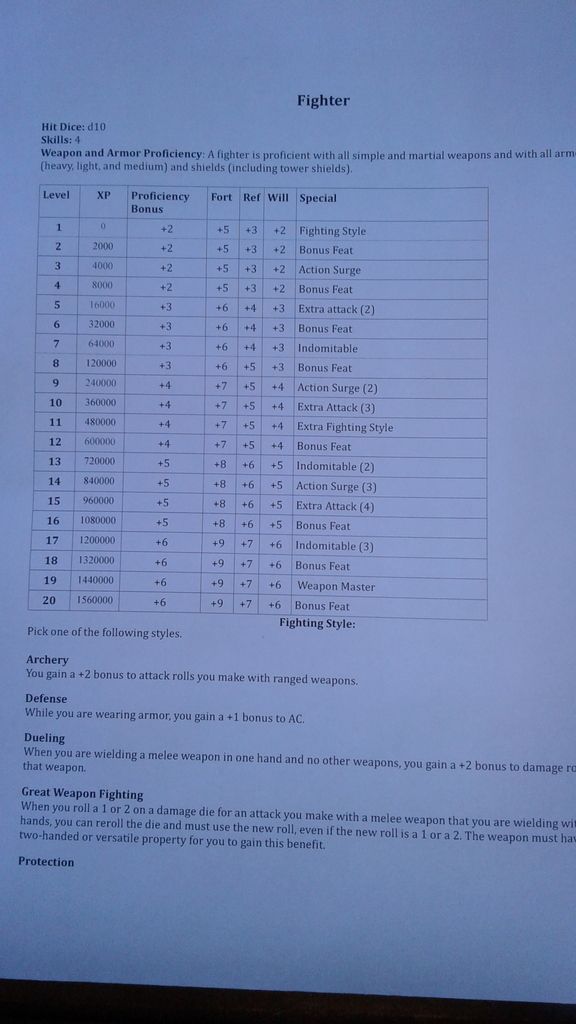Zardnaar
Legend
I like thinking up various ways to hack games. A few years back I designed my own D&D that was an attempt to fix 3.5 that eventually ended up more like Advanced BECMI with feats and races/classes. After playing 5E for a bit though I have startred to like the guts of the game a lot as it has the d20 mechanics form 3E I generally like but without the number bloat. And the advantage/disadvantage mechanic can be easily incoprated into various d20 type games from 3.X, 4E, clones, Pathfinder and Star Wars Saga although similar mechanics already exist in some of the. Anyway some thoughts about what you could do with the guts of 5E's proficency systems.
1. AD&D with smaller numbers. One could use THACO I suppose but you oculd also have smaller numbers with ACs topping out in the -5 to -10 range along with +5 weapons and so. One might have to tweak the classes abit and AD&D could generally be improved with a unified ability score thing anyway (probably BECMI numbers over d20).
2. Rewriting 3.5. To much work for the payoff (may as pwell play PF) but possible.
3. A 4.75. More or less 4E as written but plugging in 5E's numbers (bounded accuracy) and skill/proficiency system along with perhaps adding bonus actions over minor actions.
4. A Star Wars Saga with fixed numbers and overhauled force system.
5. d20 Mass Effect type game.
6. Prestige classes in d20 games that use them or potentially can use them like 5E (more SWSE 2.0, a Mass Effect RPG, a 3E/5E hybrid)
7. Homebrew 5E/BECMI hybrid (more or less my current homebrew D&D game).
So yeah just thinking about the hacking one could do with the 5E core mechanic.
1. AD&D with smaller numbers. One could use THACO I suppose but you oculd also have smaller numbers with ACs topping out in the -5 to -10 range along with +5 weapons and so. One might have to tweak the classes abit and AD&D could generally be improved with a unified ability score thing anyway (probably BECMI numbers over d20).
2. Rewriting 3.5. To much work for the payoff (may as pwell play PF) but possible.
3. A 4.75. More or less 4E as written but plugging in 5E's numbers (bounded accuracy) and skill/proficiency system along with perhaps adding bonus actions over minor actions.
4. A Star Wars Saga with fixed numbers and overhauled force system.
5. d20 Mass Effect type game.
6. Prestige classes in d20 games that use them or potentially can use them like 5E (more SWSE 2.0, a Mass Effect RPG, a 3E/5E hybrid)
7. Homebrew 5E/BECMI hybrid (more or less my current homebrew D&D game).
So yeah just thinking about the hacking one could do with the 5E core mechanic.

